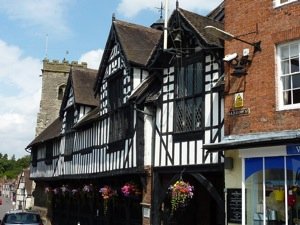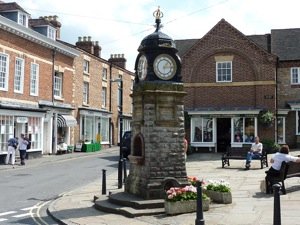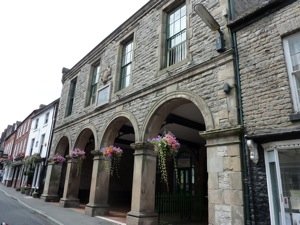Much Wenlock
Much Wenlock is part of the county of Shropshire in the West Midlands area of England. It was formally incorporated by King Edward IV in the 1460s and was also given later charters by Henry VIII and Charles I.
The town was known for many centuries as Wenlock which means ‘White Place’. This name may well have been derived from the Celtic term ‘Gwynloc’ and may be based on the limestone rocks that occur in the area. It was also referred to as Winnecas for some time and as Wenloch in the Domesday Book.

Recent evidence has shown that there may have been Romans in the town area but the town itself really first appeared in the late 600s when a monastery was built in the immediate area by the son of the Mercian King Penda. The Abbess of this site, Milburga, was held to be able to perform miracles and was made a saint after she died.
As was often the case historically, the town built up around the monastery over time. Much Wenlock flourished for a couple of centuries until the times of the Viking invasions when it was attacked. By the 11th century the then Earl of Mercia, Leofric built another religious building on the site. Ultimately this was rebuilt in the 12th century as a Cluniac priory. This priory was built by the Earl of Shrewsbury, the Norman knight Roger de Montgomerie. This priory operated successfully in the Much Wenlock area until the times of the Dissolution of the Monasteries.

Visitors can visit Roger de Montgomerie’s priory which is now an English Heritage site. The actual building is now just ruins but these themselves are historically interesting. Any visit to Much Wenlock should also include a visit to the Guildhall which dates back to the 16th century.
If you are visiting Much Wenlock in July then you may be lucky enough to see the Wenlock Olympic Games which are held here each year. A Victorian resident of Much Wenlock, Dr William Penny Brookes set these games up in the mid 1800s. He also set up county wide games a few years later and played a major role in setting up the Olympic Games on a national level as well. The first Olympic Games here were held in 1858.

Nature lovers may also enjoy a visit to the Wenlock Edge. The town additionally organises a guided walk which is called the Wenlock Walk. The town museum is also an interesting visit. The museum is sited in the town’s old market hall known as The Memorial Hall.
Links:
